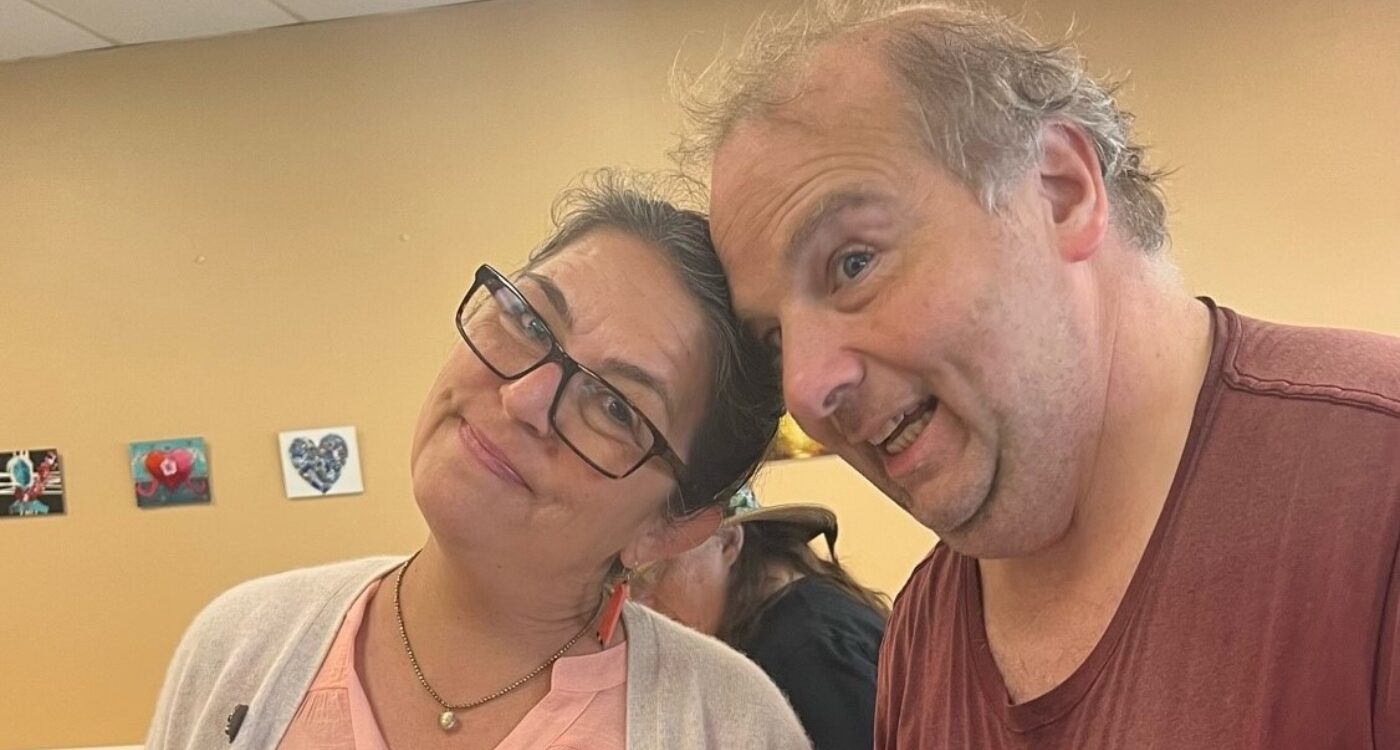Our team bid farewell this month to Dez, whose services as a spiritual care provider have been part of the New Beginnings Center shelter for nine months.
She joined Homeward Bound last August to fulfill clinical hours for her training at the Shaw Chaplaincy Institute, which is affiliated with the University of Redlands at their San Anselmo campus. Dez has spent more than 20 hours per week since then at our shelter.
During her time, she has led memorial services and blessed homes at the request of participants moving to new housing. She has offered weekly meditation and mindfulness sessions in our library and – most of all – been available one-on-one for program participants.
“My role is not to convert anyone or teach a particular faith. It is just to be with people, meeting them where they are, and to listen. Sometimes, just remembering a person’s name and saying hello, is enough. It can mean a lot,” Dez says.
Participants tell her the meditation sessions help them find ways to relax as they settle in. “They have to adjust to a place that can be overwhelming, living with 79 other people. Having a time of quiet relaxation is an important support,” she says.
Dez emphasizes that she’s not a psychologist or someone assigned to diagnose, analyze or set goals for people. Her purpose, she says, centers on affirming a person’s life-giving beliefs and providing a loving, non-judgmental presence.
Hanna McCarthy, program director at New Beginnings Center, says Dez has been embraced by participants. At a recent meeting, one told her, “Thank you for leaving everyone a little better than you found them.” Dez is quick to say, “I am not leaving anyone better. I am just affirming their innate goodness that is already there.”
As we celebrate Mental Health Awareness Month, Dez shows you don’t have to be a mental health professional to give support. “She has provided real healing for our population that have experienced stigma,” Hanna says.
About Homeward Bound of Marin
Homeward Bound of Marin is the primary provider of Marin County homeless shelters and services for homeless families and individuals in Marin, California. Learn more about our programs here.

